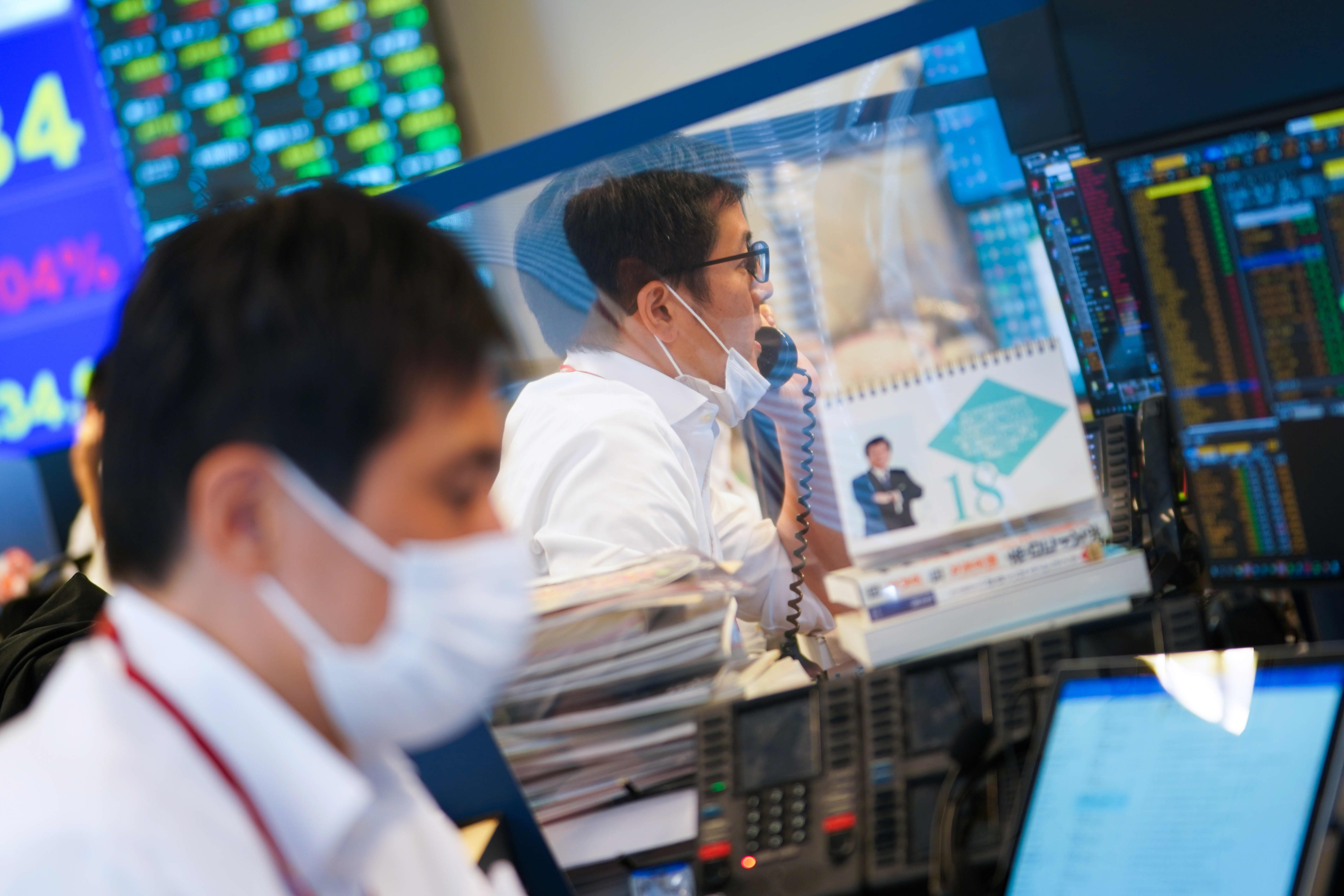
SINGAPORE — Chinese stocks declined on Tuesday, tracking other losses in Asia-Pacific markets, as the omicron variant returned to focus. Meanwhile, bitcoin prices continued to tumble after some losses overnight.
Hong Kong’s Hang Seng index led losses, tumbling 1.27%. Tech stocks dipped, with Alibaba down 1.65%, Tencent losing over 1%. JD tumbled more than 2%. The Hang Seng tech index was down about 2%.
Shares of Chinese social media giant Weibo dropped more than 9%, as China’s cyberspace regulator says it has fined the firm’s operator three million yuan ($471,151). Since its trading debut in Hong Kong last week, the stock has lost over 10%.
Meanwhile, Chinese telecommunications operator China Mobile announced in a filing that it has received approval from regulators for a secondary listing in Shanghai, for an offering of up to 845.87 million shares.
Mainland Chinese shares were also in negative territory. The Shanghai composite was down 0.6%, while the Shenzhen component dipped 0.5%.
Japan’s Nikkei 225 lost 0.48%, while the Topix was flat. Taiwan’s Taiex fell nearly 1%.
South Korea’s Kospi fell 0.65%, with tech names in the red. SLG Electronics was down 2.61%.
Australia’s S&P/ASX 200 dipped marginally, hovering near the flatline.
Bitcoin prices continued to decline in the morning during Asia trade, after tumbling overnight to a low of over $45,800. It last pared losses to gain 1% to $47,116, according to Coin Metrics.
Renewed caution on omicron variant
Caution on the new omicron variant prevailed again as the U.K. confirmed Monday that at least one patient infected with the new omicron variant of Covid-19 has died in the country. China also reported its first omicron case.
The University of Oxford published results on Monday showing two doses of the Oxford-AstraZeneca or Pfizer–BioNTech Covid-19 vaccines are substantially less effective at warding off omicron compared to previous variants of the coronavirus. The study has yet to be peer-reviewed.
The research paper noted that some vaccine recipients “failed to neutralize” the virus at all.
U.S. stocks pulled back overnight, with the S&P falling from a record start earlier in the week. It fell 0.9% to 4,668.97 and sits about 1.6% from its intraday record. The Dow Jones Industrial Average traded 320 points lower to 35,650.95. The technology-focused Nasdaq Composite fell nearly 1.4% to 15,413.28.The technology-focused Nasdaq Composite fell nearly 1.4% to 15,413.28.
“An increasing number of companies in Europe are telling staff to work from home amid rising cases numbers. Further research shows the lower protection from two doses of mRNA vaccines. China also reported its first case of Omicron. This offset a more bullish view of the oil market from OPEC,” ANZ Research analysts Brian Martin and Daniel Hynes wrote in a Tuesday note.
Oil prices fell Monday on renewed doubts about the variant. However, they were little changed in the morning during Asia hours. U.S. crude inched marginally down to $71.23 per barrel, while Brent futures were near the flatline at $74.33.
Investor focus will also likely be on the Fed’s latest two-day policy meeting, which kicks off on Tuesday. After the meeting wraps up on Wednesday, the Fed is expected to announce that it will speed up the pace of tapering its asset purchasing program.
Currencies
The U.S. dollar index, which tracks the greenback against a basket of its peers, was at 96.416 — sharply rising from levels around 96.3 earlier.
The Japanese yen traded at 113.62 per dollar, weakening from around 113.2 in earlier sessions. The Australian dollar was at $0.7112, falling back from earlier levels of around $0.713.
— CNBC’s Chloe Taylor contributed to this report.
Source: CNBC
